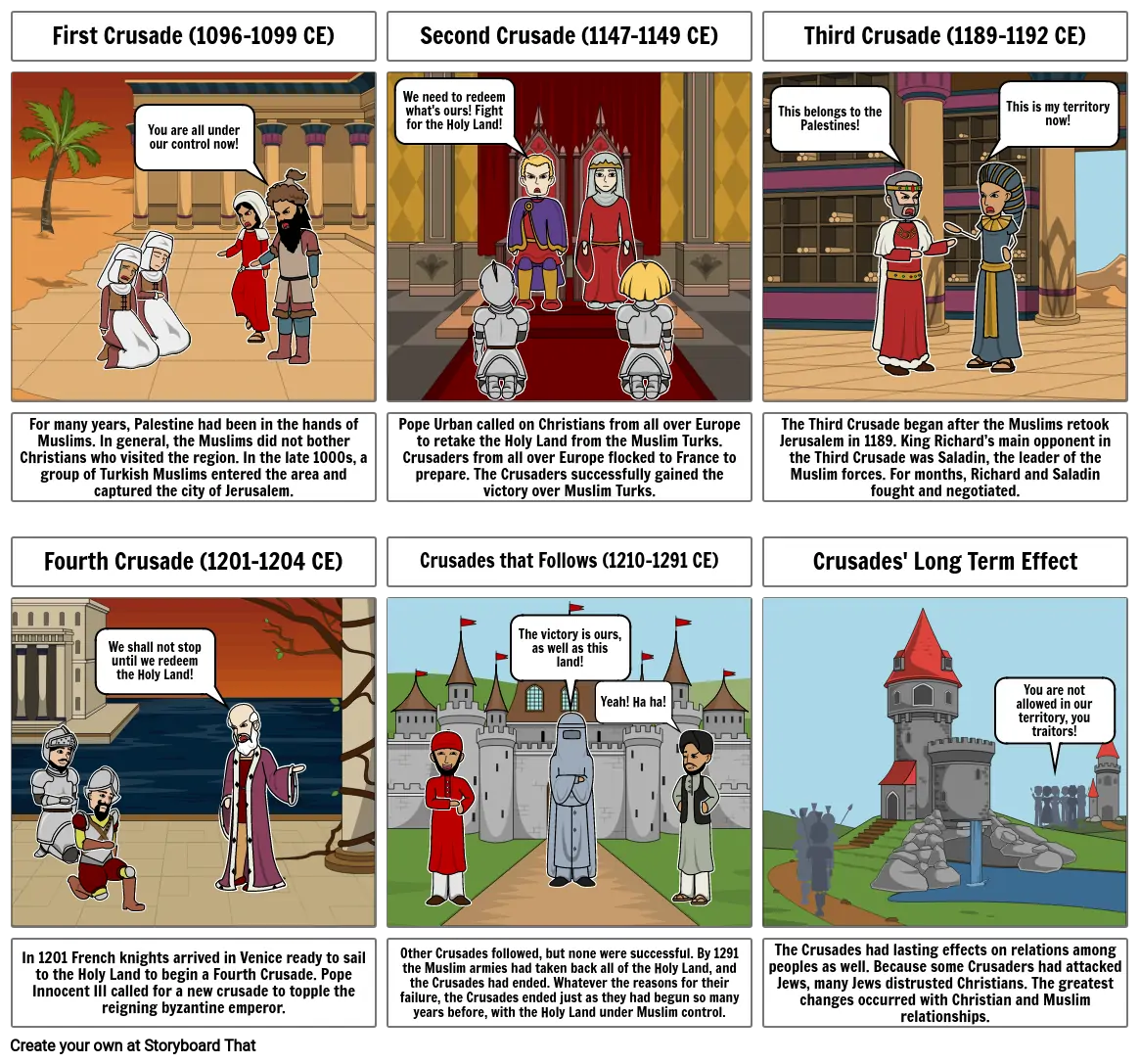The Crusades

Storyboard Text
- First Crusade (1096-1099 CE)
- You are all under our control now!
- Second Crusade (1147-1149 CE)
- We need to redeem what's ours! Fight for the Holy Land!
- Third Crusade (1189-1192 CE)
- This belongs to the Palestines!
- This is my territory now!
- For many years, Palestine had been in the hands of Muslims. In general, the Muslims did not bother Christians who visited the region. In the late 1000s, a group of Turkish Muslims entered the area and captured the city of Jerusalem.
- Fourth Crusade (1201-1204 CE)
- We shall not stop until we redeem the Holy Land!
- Pope Urban called on Christians from all over Europe to retake the Holy Land from the Muslim Turks. Crusaders from all over Europe flocked to France to prepare. The Crusaders successfully gained the victory over Muslim Turks.
- Crusades that Follows (1210-1291 CE)
- The victory is ours, as well as this land!
- Yeah! Ha ha!
- The Third Crusade began after the Muslims retook Jerusalem in 1189. King Richard’s main opponent in the Third Crusade was Saladin, the leader of the Muslim forces. For months, Richard and Saladin fought and negotiated.
- Crusades' Long Term Effect
- You are not allowed in our territory, you traitors!
- In 1201 French knights arrived in Venice ready to sail to the Holy Land to begin a Fourth Crusade. Pope Innocent III called for a new crusade to topple the reigning byzantine emperor.
- Other Crusades followed, but none were successful. By 1291 the Muslim armies had taken back all of the Holy Land, and the Crusades had ended. Whatever the reasons for their failure, the Crusades ended just as they had begun so many years before, with the Holy Land under Muslim control.
- The Crusades had lasting effects on relations among peoples as well. Because some Crusaders had attacked Jews, many Jews distrusted Christians. The greatest changes occurred with Christian and Muslim relationships.
Over 30 Million Storyboards Created
No Downloads, No Credit Card, and No Login Needed to Try!
